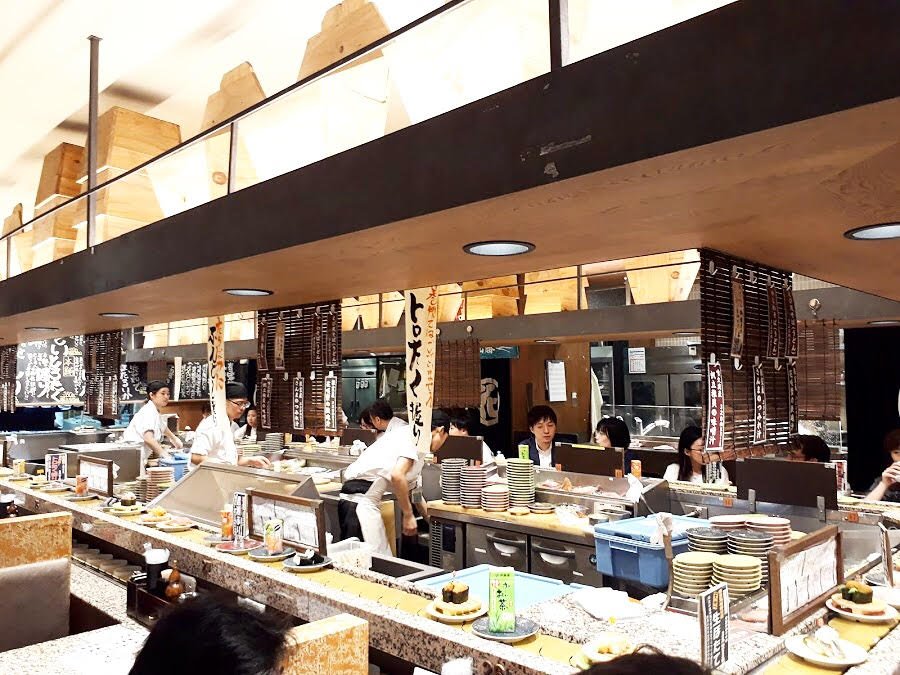
I came across a story online that told of a small Japanese sushi place. Every customer that went there would say that theirs was the best sushi they've ever had. When advised that they should open up a bigger branch, the owner politely but firmly said “No thanks.” Everybody exposed to the mentality that “bigger is always better” would be confused. How could the owner say such? I believe the answer, my friends, lie in the fact that most Japanese prioritize quality service over profit. They don’t want to compromise the experience - taste and service - that they were giving their customers.
As such, I found it fitting to write about the unique dining experiences that I’ve encountered in my two-week stay in Japan. Hope you guys enjoy reading this!
A bit of a disclaimer before we continue, I’m not a foodie or a food critic. You may treat this write-up as a food guide and appreciation post. It’s not really that hard to appreciate Japanese service because it’s top-notch. I hope I did the food restos justice!
“Not all ramens are created equal...some make you feel like the ramen gods have granted your meal their blessings, the rest remind you that the world is such a horrible place,”
as my boyfriend likes to say. My experience at Ichiran definitely reminded me of that absurd, but valid observation. I’ve only tasted two best ramens in my lifetime. The tonkotsu (a Japanese broth made from pork marrow) ramen at Ichiran was definitely one!
The (loooong) line
A striking observation that I and my boyfriend had about food places in Japan is that they don’t mind waiting up in really long lines. My boyfriend speculated it could be because the food they serve is good, that it’s worth waiting in line for. It gives a place kind of a good reputation when the people line up for them. The line at Ichiran was definitely long - the type where people would squeeze into mini-lines just so everyone would fit. Locals and foreigners were lining up just to try the ramen at this place. It helps that the Japanese like to have their meals finished in one go, so for every five minutes, a seat was available for the next person in line to occupy.
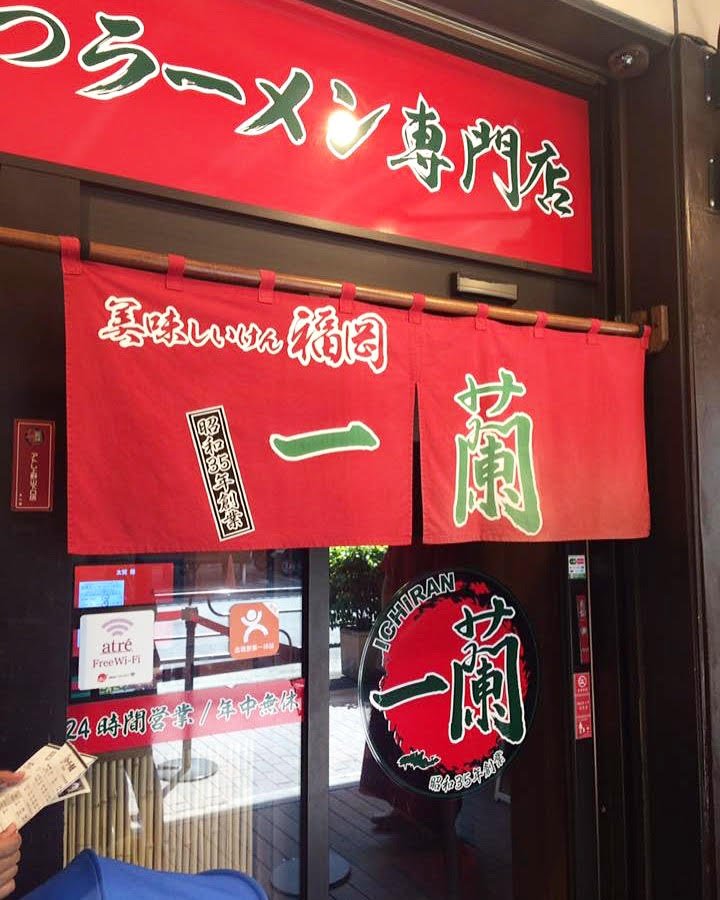
Red and green. Ichiran's logo is a standout among the myriad of colorful Japanese ads.
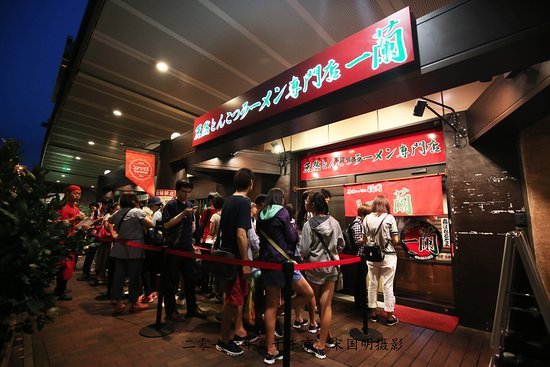
Photo from tripadvisor. This wasn't the line that we waited in, but the number of people lining up'll give you an idea of all the waiting that you'll have to do.
The ramen checklist
Our waiting in line wasn’t that unproductive, we were handed out these flyers to tick off our specific add-ons just so we get ramens up to our taste. This type of ordering system resembled that of Kublai Khan’s (a Mongolian restaurant in Cebu) “check-a-bowl” so I assumed that this ramen place was offering a similar kind of experience. I ticked off my preferences and we waited for a couple of minutes more.
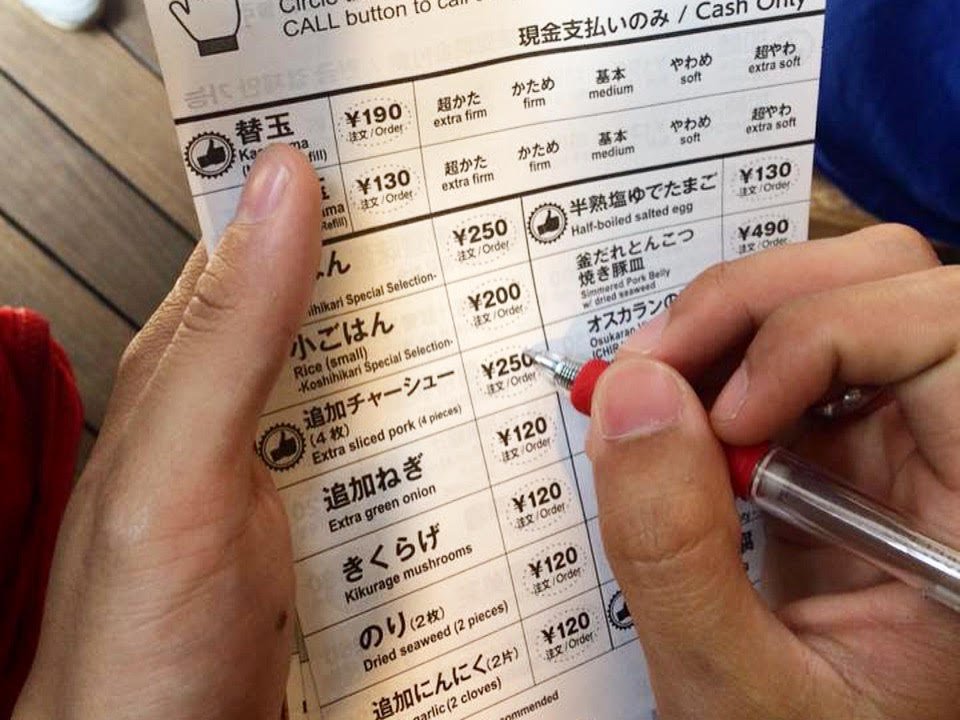
You get to choose your soup's thickness, side dishes, level of spiciness and spices to your taste.
The ticket machine
When I thought about Kublai Khan’s check-a-bowl experience, I also thought that we were going to order into a counter with a cashier that will get your money and give you change and all. But a vending machine greeted us as we entered Ichiran. It became clear to me that the checklist was a guide for you before you input your meal choices. It served as a cashier too. You insert your money to pay for your order. It gives you ticket stubs that you, in turn, give to the cooks just so they can serve the ramen especially made for you.
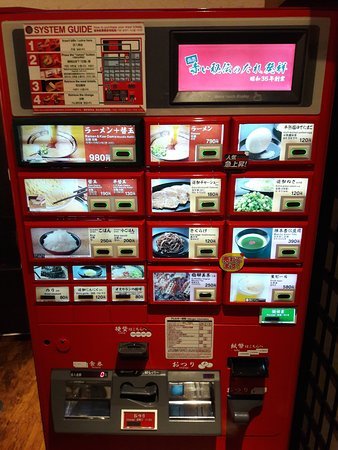
Photo from tripadvisor. You plug in all of the good stuff that you indicated in your checklist. You can also change your mind and add in more of what you'd like, like rice!
The set-up
When I was told that we were going to have ramen for lunch, they didn’t tell me that the place itself was a treat. You get to sit in your own booth, complete with utensils and tea tap! In front of you is a window where the cooks could serve you your ramen. Unlike Filipinos, the Japanese usually take their meals on their own, so they’re used to single tables or corners in food shops and cafes.
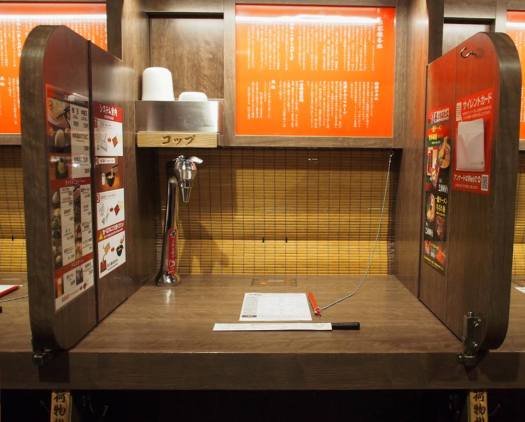
Photo from source. Your own booth complete with utensils, tea tap, cups and window to the kitchen.
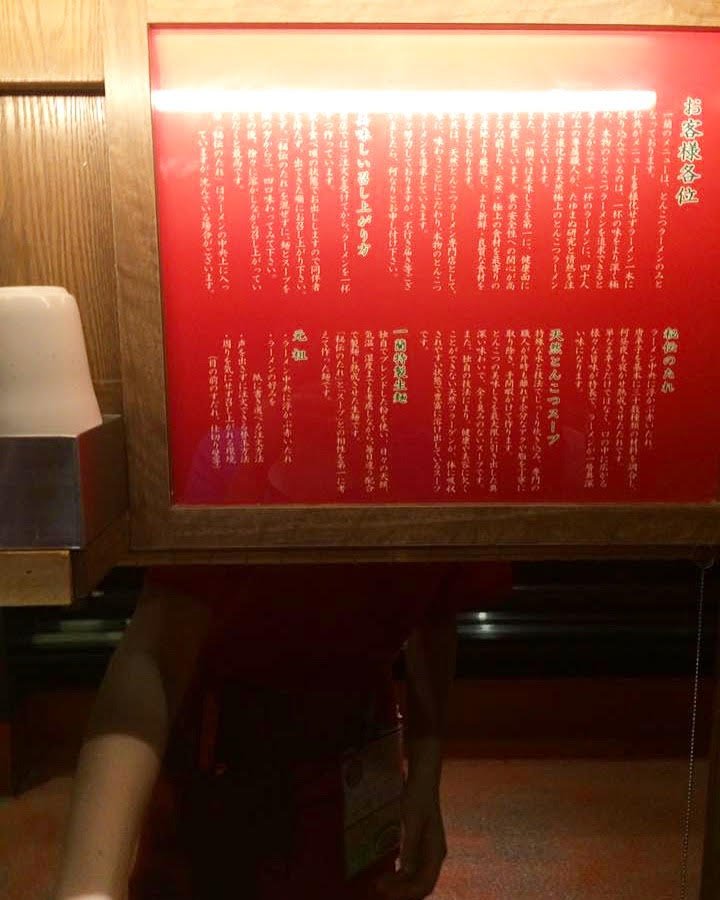
That's the hand of the server right there.
The food
The place was famous for its tonkotsu ramen. My sides were more pork, rice and greens. As a true-blooded Filipino, I had to have rice! They offer other sides too, like: seaweed, egg, and other spices. As I was really hungry, I dug in and got full right away. I wasn’t able to finish the serving. My hungry mind said that I could finish it all but my tummy couldn’t handle it anymore. The serving was big for me.
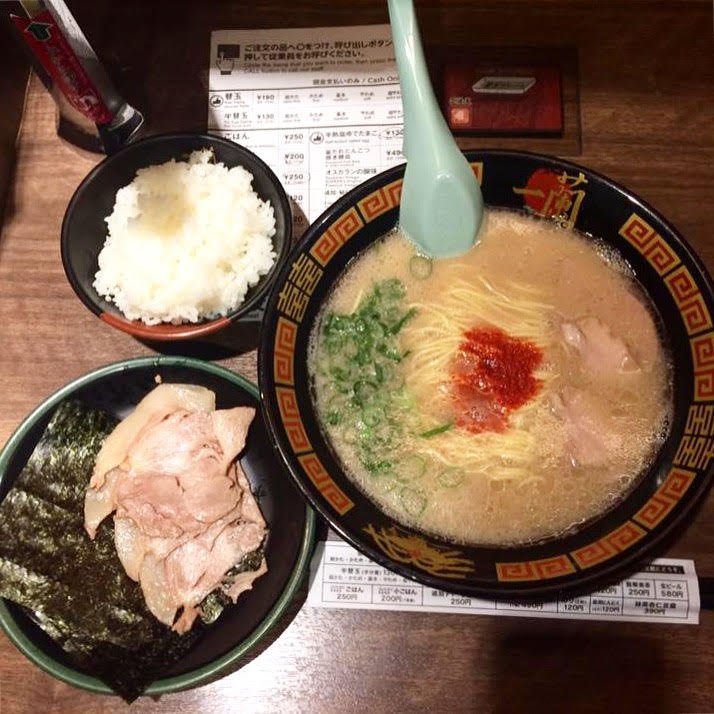
I like my ramen flavorful and with greens.
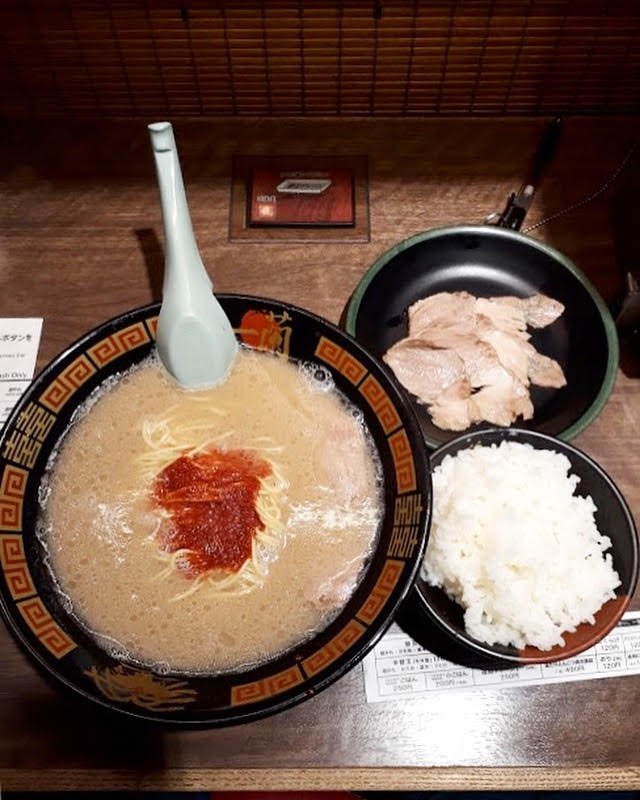
My boyfriend likes his ramen spicy and without greens.
The unique experience
My first taste of Japanese food and service set the bar high. It was in Ichiran that I learned that the Japanese were willing to line up for really good food. They also eat on their own, so most of their dining places are catered to that, more single tables compared to really big ones. It was my first time to experience that open window service too.
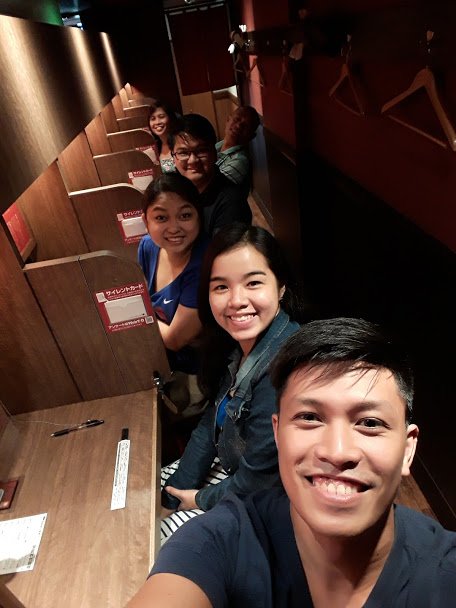
The family that eats ramen together, gets full together!
The branches in Tokyo
I think that the Ichiran branch that we dined in was in Ueno. As I searched through Google, I found out that the famous ramen place has other branches in Japan as well. Here are some of their branches in Tokyo:
Shinjuku
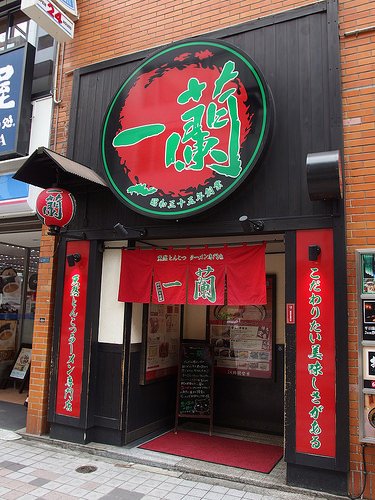
Photo from source. This is located at Shinjuku Kabukicho CR.B & V Building 1F/B1F 1-17-10 Kabukicho, Shinjuku-ku, Tokyo-to 160-0021.
Shibuya
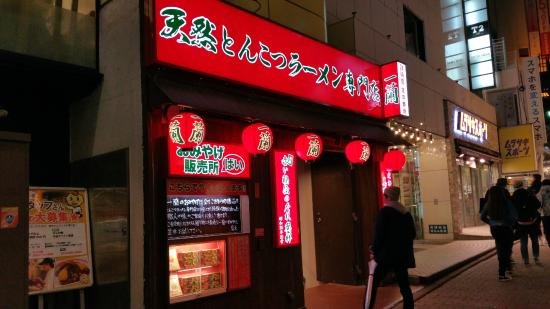
Photo from tripadvisor. This is located at 1-22-7 B1F Jinnan Shibuya-ku Tokyo-to 150-0041.
Ueno
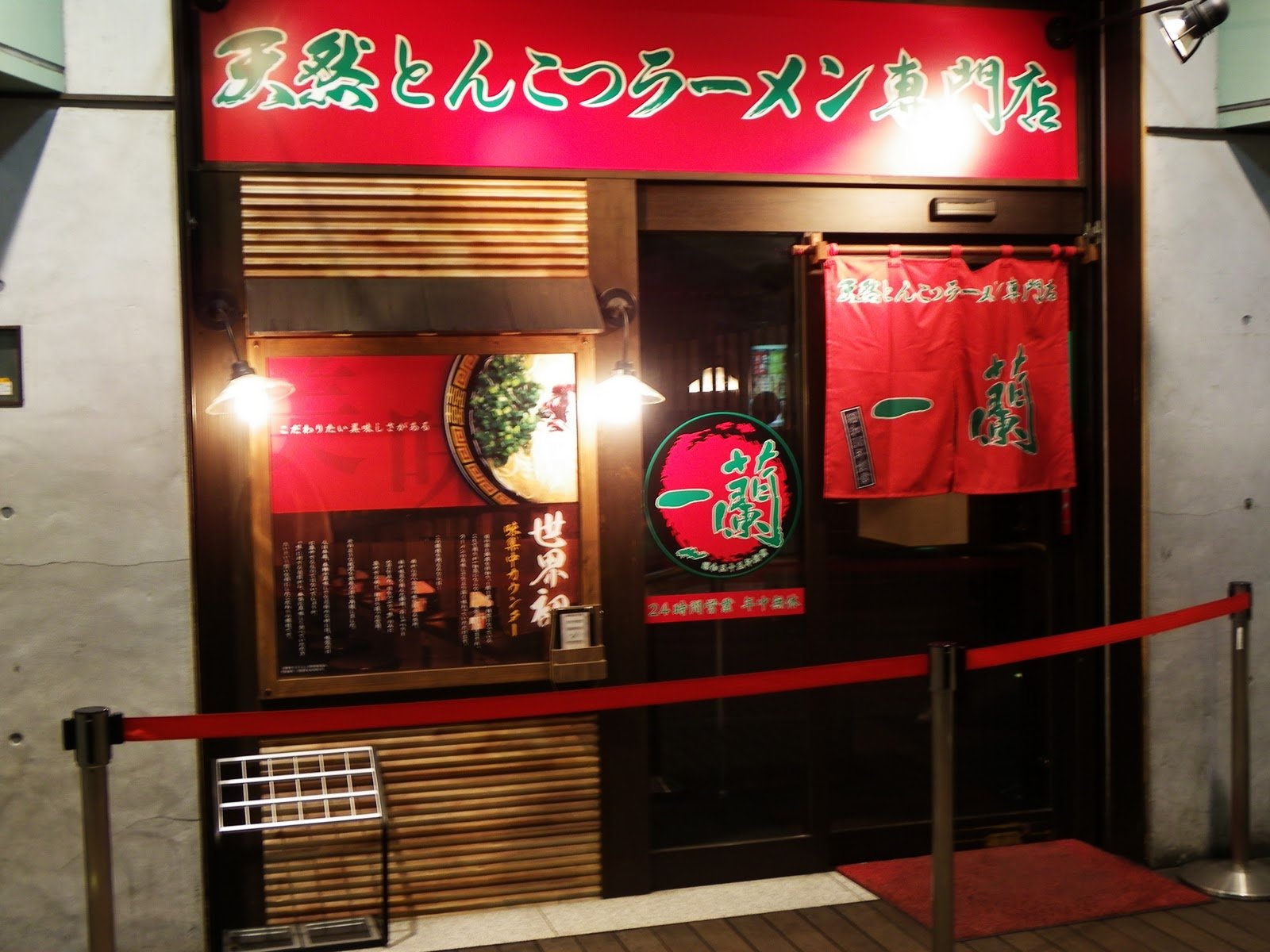
Photo from source. This is located at 7-1-1 Ueno Taito-ku Tokyo-to 150-0005.
Harajuku
Photo from source. This is located at 6-5-6 2F Jingumae Sibuya-ku Tokyo-to 150-0001.
No trip to Japan would ever be complete without trying their iconic dish - sushi! I’ve heard from some of my Japanese friends that sushi is something that they only have on special occasions because it’s really expensive. But I learned later on that the very expensive sushi were made special and that there were places that served affordable but still the pretty good kind. I was looking forward to the unique taste that each sushi offered. I couldn’t miss it for the world!
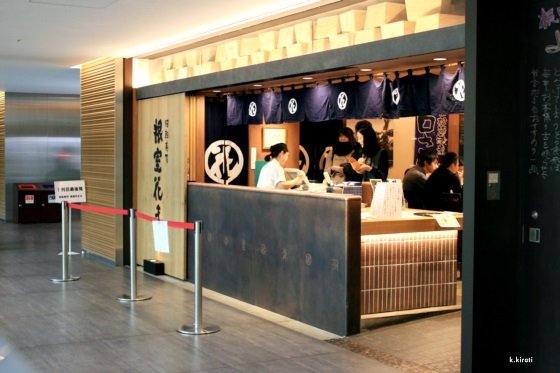
Photo from source. A rare sight of Nemuro Hanamaru without the long line!
Kitte Mall
Nemuro Hanamaru was in Kitte Mall, a pretty luxe mall near Tokyo station. It helped that we had our friend, Ina, who speaks Japanese with us as the person who’s in charged to reserve seats for us only speaks Japanese. Another fact that my Japanese friends tell me is that most Japanese people don’t speak English that much. Most of them learn the language by junior high school, but they don’t get to practice it in their country because most transactions are done in Japanese. Anyway, Ina told the waitress to reserve tables for 7 people and after a lot of minutes waiting in line, again, we feasted!
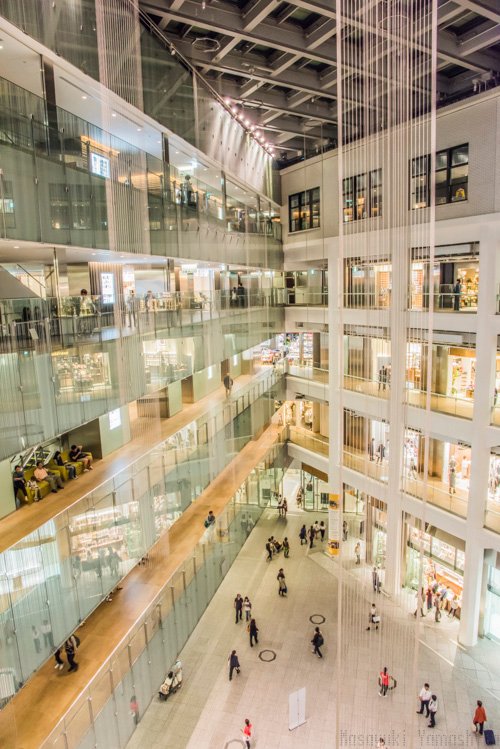
Photo from coolphotojapan.com. Kitte Mall. This is located near Tokyo station.
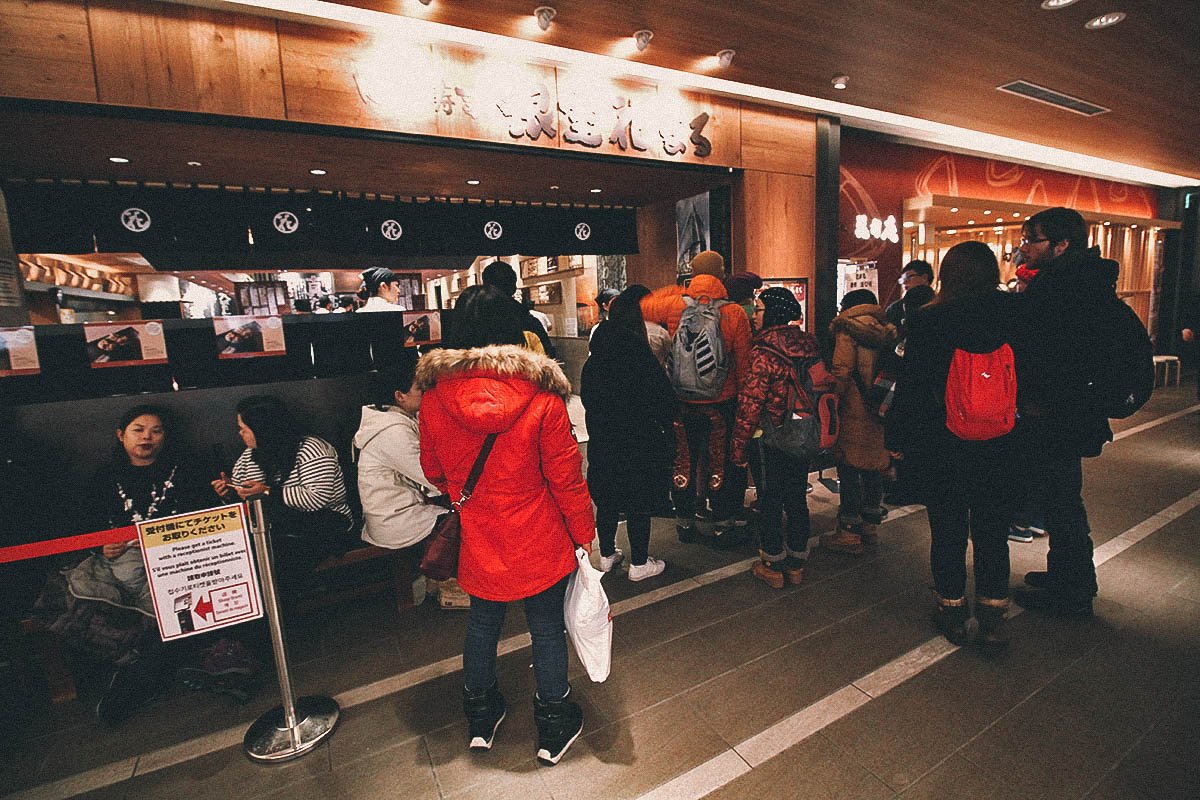
Photo from willflyforfood.net. This line is a quarter shorter than our actual line.
Conveyor belt service
Kaiten Sushi, as it’s called in Japanese, is popular among Japanese and tourists alike. It allows for the diner to grab hold of a dish that he likes once it's within reach. The cooks make the dishes fresh. After they prepare the dishes, they place them on the conveyor belt. The dish is then ready to be grabbed by the hungry diner.
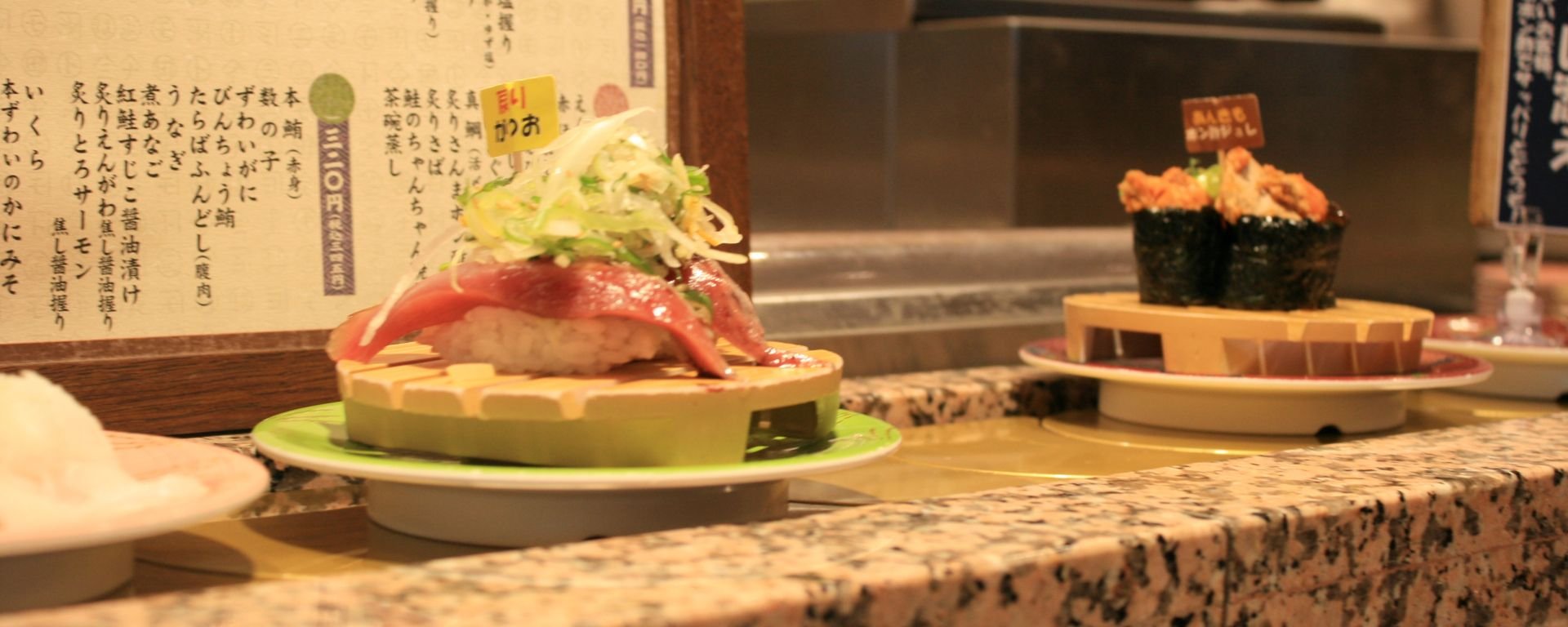
Photo from source. Conveyor belt sushi. This brings self-service to a new level of cool!
The dishes
We wondered how the cashier would keep up with the price of every food that we ordered, until Ina showed us the nifty way how. Each dish was placed on a colored plate that corresponds to a price. Before she told us that, I thought that the dishes were placed in colored plates for aesthetic purposes. But it was for the price, people!
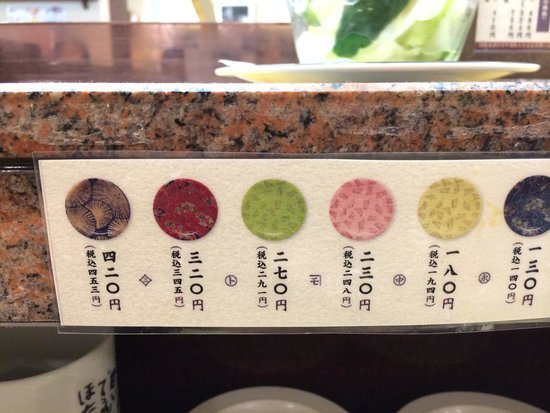
Photo from tripadvisor. Each plate color corresponds to a price.
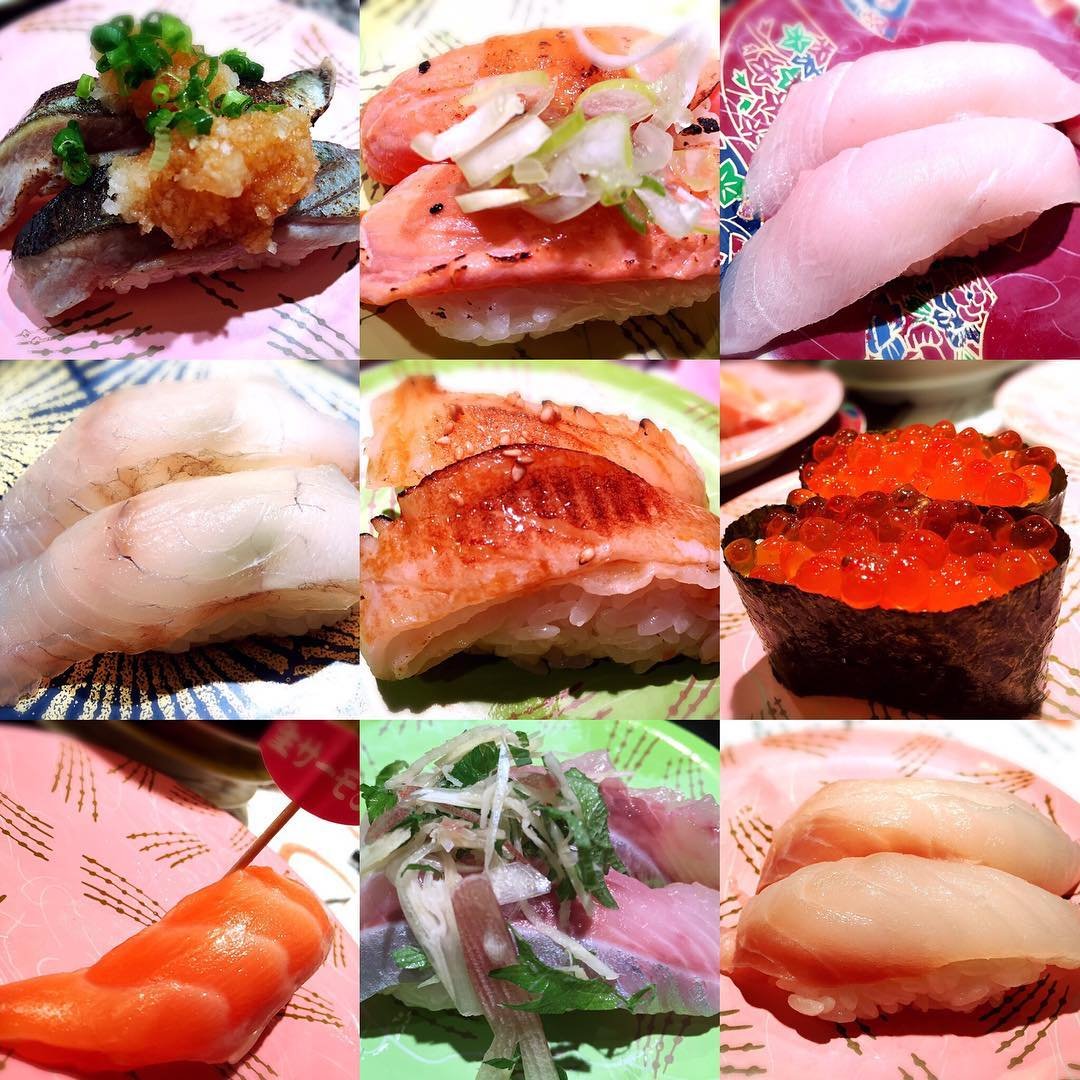
Photo from source. Some are cooked, some are raw but most taste good!
The specials
After we ate what we took from the conveyor belt, the cooks shouted something in Japanese. Two to four people were raising their hands, out of curiosity, we raised our hands as well. We were given a dish that wasn’t on the conveyor belt. I initially thought it was for free, but I was wrong. We still paid for the dishes but our mouths were filled with delight!
The unique experience
Waiting in line for this place took longer than any other places that we’ve lined up for before. You know what they say about being in Rome? You act like the Romans. That’s what we did. Despite being hungry from all the walking and sightseeing, we waited for our turns as all the others did. It helps to learn a few Japanese words in case no staff spoke English. Japanese words for “table for 5,” “water, please,” “thank you,” and “you’re welcome,” should be learned by heart!
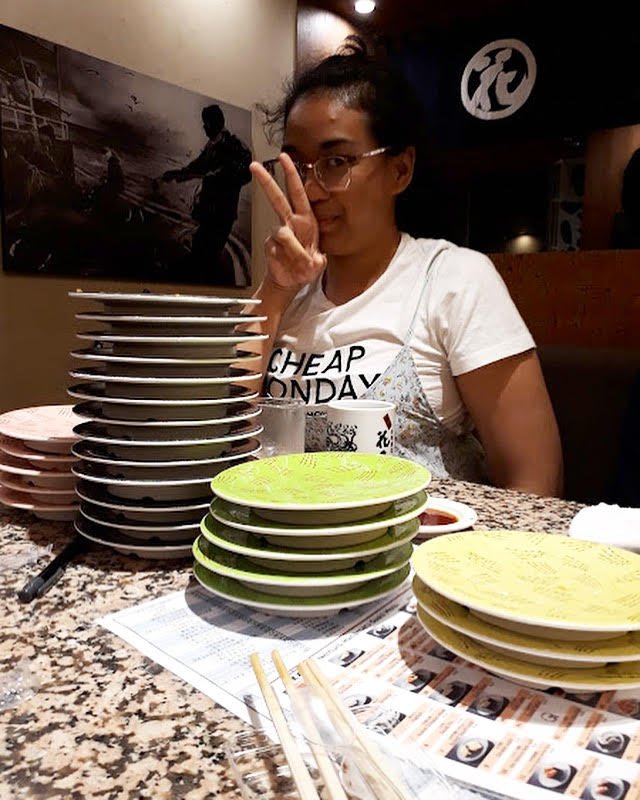
The dishes we had and our friend, Ina. We stacked the dishes by color for easier calculation of the bill.
Other great sushi places
Our friend said that there were other sushi places in Japan, just that Nemuro Hanamaru was the closest to where we were at. I checked out some sushi bars and conveyor belt sushi places online, and here are some of the top picks:
Sushi Mizutani
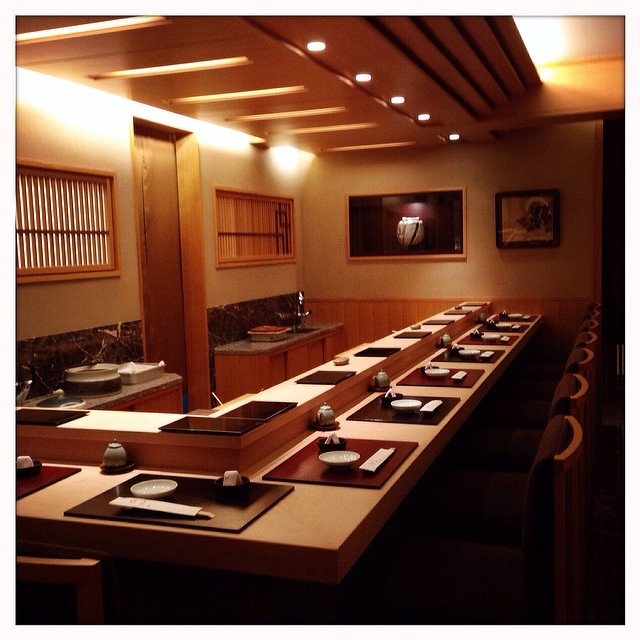
Photo from hubjapan.io. Sushi Mizutani which is located at 9F Juno Ginza Seiwa Building, 8-7-7 Ginza Chuo Tokyo.
Uobei
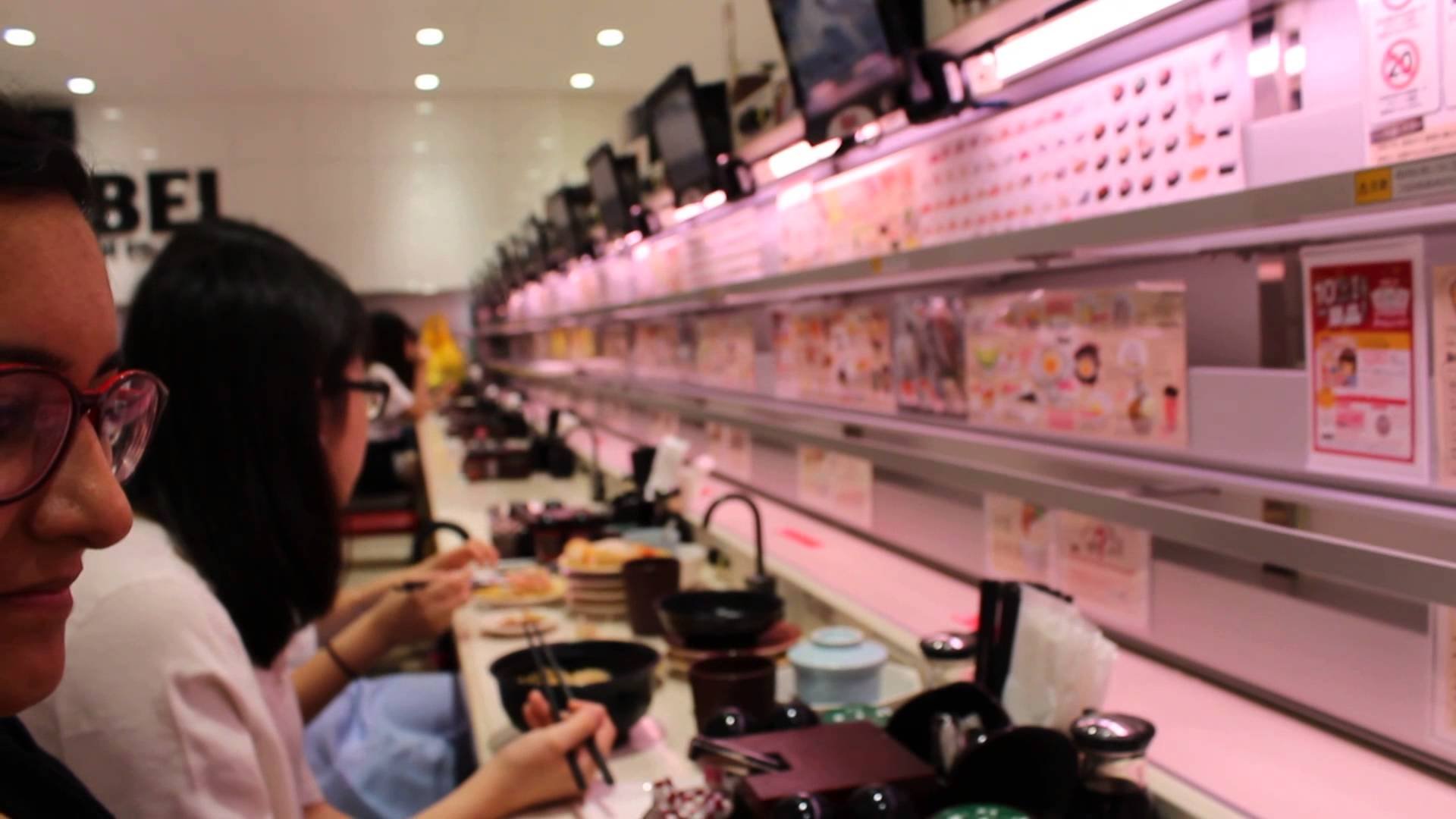
Photo from source. Uobei is a kaiten sushi place located at 2-29-11 Dogenzaka, Shibuya-ku, Tokyo.
Katsu
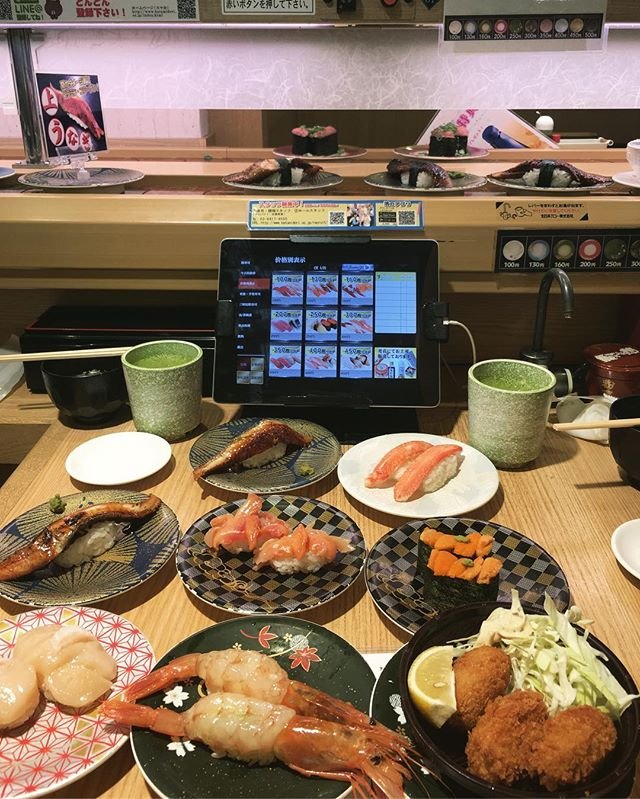
Photo from hubjapan.io. Katsu is also a conveyor belt sushi resto located at Seibu Shibuya Department Store 8F
21-1, Udagawacho, Shibuya-ku, Tokyo.
After a few days of staying and eating at food shops in Japan, my Filipino tongue missed the signature taste of our food - oily, fried and bowlfuls of rice! Luckily, Maisen, a famous tonkatsu (Japanese style pork cutlet) restaurant in Japan gave me my fix! Minus the oily part though. The tonkatsu was cooked well. Aside from its well-known tonkatsu dish, they offer unlimited rice and cabbage. Really neat, if you'd ask me!
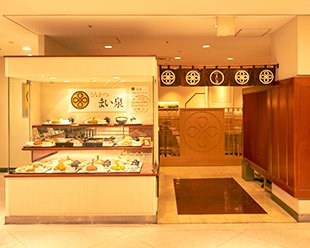
Photo from source. Maisen at Shibuya Hikarie. We went here twice for the good tonkatsu and unli rice!
The condiments and tea
The tables are already filled with generous servings of condiments.
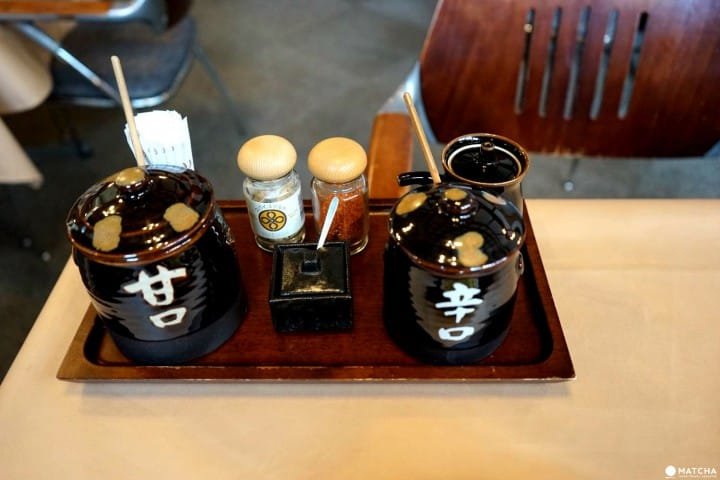
Photo from matcha-jp. There are two types of Tonkatsu sauces. One pot with contains a sauce with sweet, mild taste while the other has a sauce with spicy flavor.
Unli rice and cabbage
We actually went to Maisen twice. First was early on in the trip and the second was when we were about to return home to the Philippines. It was that good! And we were loyal to rice, no matter what.
Our deep-fried but not oily tonkatsu meal served with cabbage salad, pickles and miso soup.
The unique experience
From the perspective of a Filipino, dining here is a good treat to your rice-loving heart. The taste isn’t very far from what we’re used to and the service was really good. The goal of Maisen is to provide Tonkatsu that is so tender you could cut with your chopsticks. Even after it cooled down, the tonkatsu still tasted good.
The true blue rice-loving bunch.
A quick guide
Photo from matcha-jp. An easy guide to maximizing your tonkatsu experience at Maisen.
Other great tonkatsu places
Kinka Pork Cooking Hirata Farm Kiwami
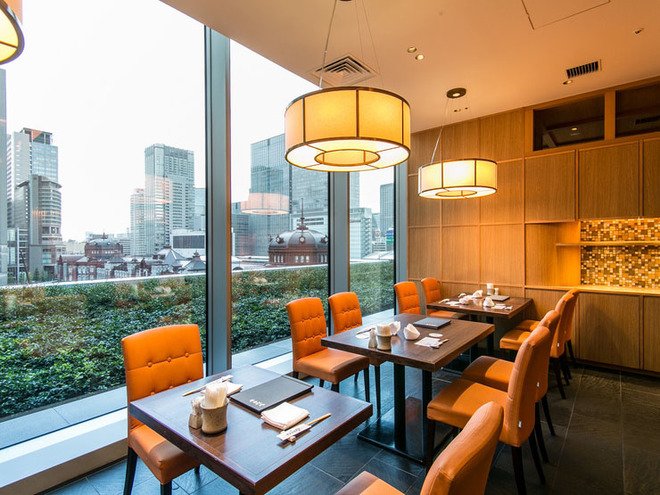
Photo from savorjapan.com. Kinka Pork Kinka Pork Cooking Hirata Farm Kiwami is located at 6F JP Tower, 2-7-2 Marunouchi, Chiyoda-ku, Tokyo.
Agezuki
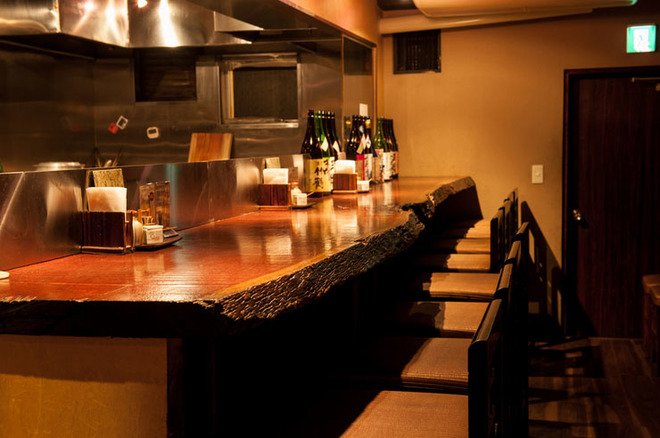
Photo from savorjapan.com. Agezuki is located at B1F, Yamanouchi Bldg., 3-2, Kagurazaka, Shinjuku-ku, Tokyo.
Ponta Honke
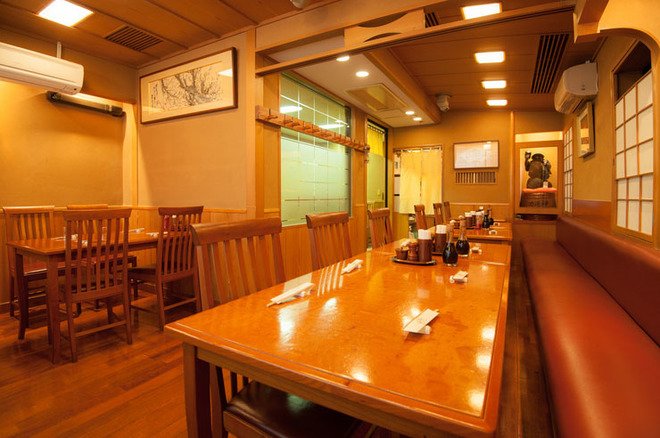
Photo from savorjapan.com. Ponta Honke is located at 3-23-3, Ueno, Taito-ku, Tokyo.
Tonkatsu Yachiyo
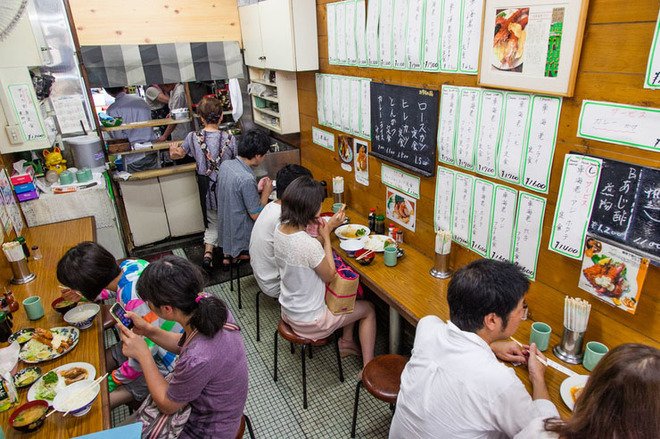
Photo from savorjapan.com. Tonkatsu Yachiyo is located at Tsukiji-Shijo Bldg. No.6, 5-2-1 Tsukiji, Chuo-ku, Tokyo.
Now what I’m going to share at this point might make some people raise their eyebrows, but this is just my opinion. Not all Japanese food is for the Filipino’s tongue. By Filipino tongue, I meant mine. I like my food with its sharp and distinct taste. Japanese food lean to the healthy side so that means food had less salt, sugar and flavor. Even the iced tea that looked like C2 tasted like water.
Anyways, to those Pinoys looking for some taste of home, these are some fastfood chains that are familiar to most of us:
McDonald's

Photo from collegian.com. The serving size of McDonald's in Japan is larger compared to our serving sizes back home. Foods taste less salty, iced teas can be less sweet and sodas have more kick! You also have to clean up after your meal.
Pepper Lunch
Photo from shibuya246. We haven't actually tried eating here, but I think the food here is flavorful.
Family Mart
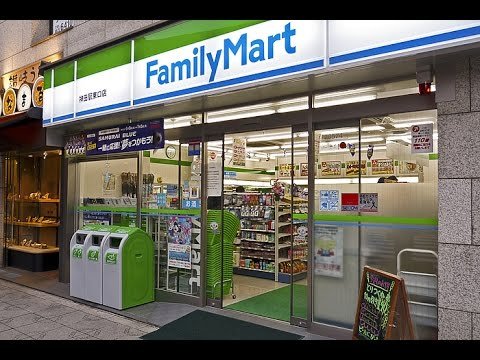
Photo from source. If you're looking for your rice fix but are on a tight budget, Family Mart sells pre-packed rice meals with a variety of Japanese-style meat dishes to choose from.
I wish you enjoyed reliving these dining experiences with me. I also wish that I haven’t made you hungrier than you already are if you hadn’t taken your meals yet! Most Japanese food may not be as flavorful as I'd like them to be, but I think the effort they pour into meal preparation is something that I will always have high respect for.
'Til next time,
